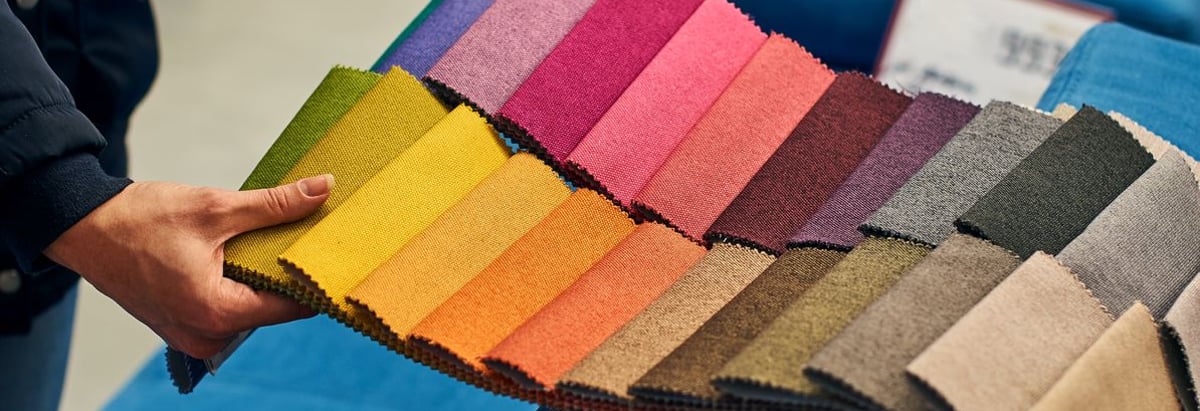Stock Analysis
Does Eclat Textile (TWSE:1476) Have A Healthy Balance Sheet?

David Iben put it well when he said, 'Volatility is not a risk we care about. What we care about is avoiding the permanent loss of capital.' So it might be obvious that you need to consider debt, when you think about how risky any given stock is, because too much debt can sink a company. We note that Eclat Textile Co., Ltd. (TWSE:1476) does have debt on its balance sheet. But should shareholders be worried about its use of debt?
When Is Debt Dangerous?
Debt assists a business until the business has trouble paying it off, either with new capital or with free cash flow. If things get really bad, the lenders can take control of the business. However, a more frequent (but still costly) occurrence is where a company must issue shares at bargain-basement prices, permanently diluting shareholders, just to shore up its balance sheet. Of course, the upside of debt is that it often represents cheap capital, especially when it replaces dilution in a company with the ability to reinvest at high rates of return. When we think about a company's use of debt, we first look at cash and debt together.
See our latest analysis for Eclat Textile
How Much Debt Does Eclat Textile Carry?
You can click the graphic below for the historical numbers, but it shows that Eclat Textile had NT$1.19b of debt in June 2024, down from NT$1.84b, one year before. But it also has NT$5.17b in cash to offset that, meaning it has NT$3.98b net cash.
How Healthy Is Eclat Textile's Balance Sheet?
We can see from the most recent balance sheet that Eclat Textile had liabilities of NT$5.65b falling due within a year, and liabilities of NT$87.3m due beyond that. On the other hand, it had cash of NT$5.17b and NT$6.11b worth of receivables due within a year. So it can boast NT$5.55b more liquid assets than total liabilities.
This surplus suggests that Eclat Textile has a conservative balance sheet, and could probably eliminate its debt without much difficulty. Succinctly put, Eclat Textile boasts net cash, so it's fair to say it does not have a heavy debt load!
Also good is that Eclat Textile grew its EBIT at 18% over the last year, further increasing its ability to manage debt. When analysing debt levels, the balance sheet is the obvious place to start. But it is future earnings, more than anything, that will determine Eclat Textile's ability to maintain a healthy balance sheet going forward. So if you want to see what the professionals think, you might find this free report on analyst profit forecasts to be interesting.
But our final consideration is also important, because a company cannot pay debt with paper profits; it needs cold hard cash. Eclat Textile may have net cash on the balance sheet, but it is still interesting to look at how well the business converts its earnings before interest and tax (EBIT) to free cash flow, because that will influence both its need for, and its capacity to manage debt. During the last three years, Eclat Textile produced sturdy free cash flow equating to 79% of its EBIT, about what we'd expect. This cold hard cash means it can reduce its debt when it wants to.
Summing Up
While it is always sensible to investigate a company's debt, in this case Eclat Textile has NT$3.98b in net cash and a decent-looking balance sheet. The cherry on top was that in converted 79% of that EBIT to free cash flow, bringing in NT$5.5b. So we don't think Eclat Textile's use of debt is risky. There's no doubt that we learn most about debt from the balance sheet. But ultimately, every company can contain risks that exist outside of the balance sheet. For instance, we've identified 1 warning sign for Eclat Textile that you should be aware of.
If you're interested in investing in businesses that can grow profits without the burden of debt, then check out this free list of growing businesses that have net cash on the balance sheet.
Valuation is complex, but we're here to simplify it.
Discover if Eclat Textile might be undervalued or overvalued with our detailed analysis, featuring fair value estimates, potential risks, dividends, insider trades, and its financial condition.
Access Free AnalysisHave feedback on this article? Concerned about the content? Get in touch with us directly. Alternatively, email editorial-team (at) simplywallst.com.
This article by Simply Wall St is general in nature. We provide commentary based on historical data and analyst forecasts only using an unbiased methodology and our articles are not intended to be financial advice. It does not constitute a recommendation to buy or sell any stock, and does not take account of your objectives, or your financial situation. We aim to bring you long-term focused analysis driven by fundamental data. Note that our analysis may not factor in the latest price-sensitive company announcements or qualitative material. Simply Wall St has no position in any stocks mentioned.
About TWSE:1476
Eclat Textile
Designs, manufactures, processes, trades in, markets, and sells knitted fabrics, clothing, garments, and textile raw materials in Taiwan and internationally.


